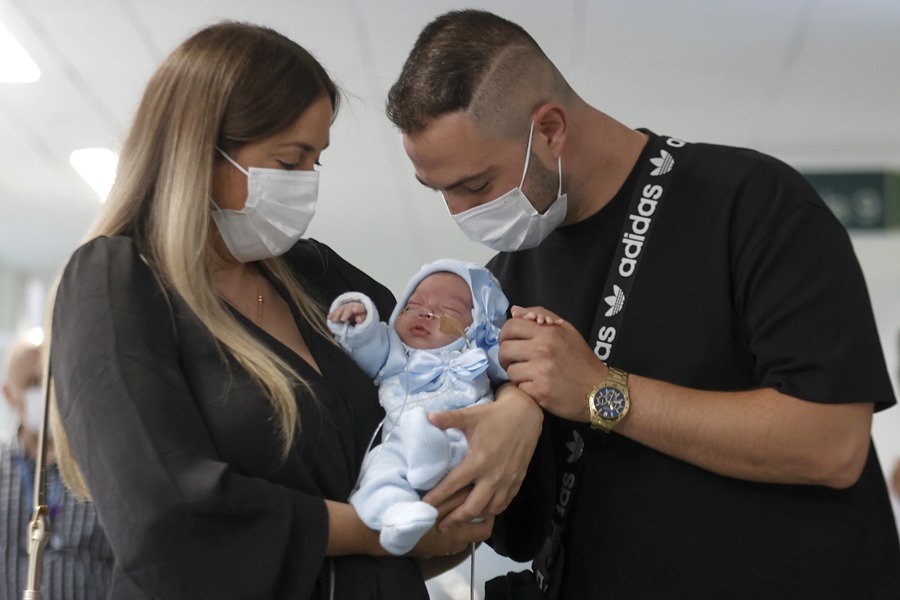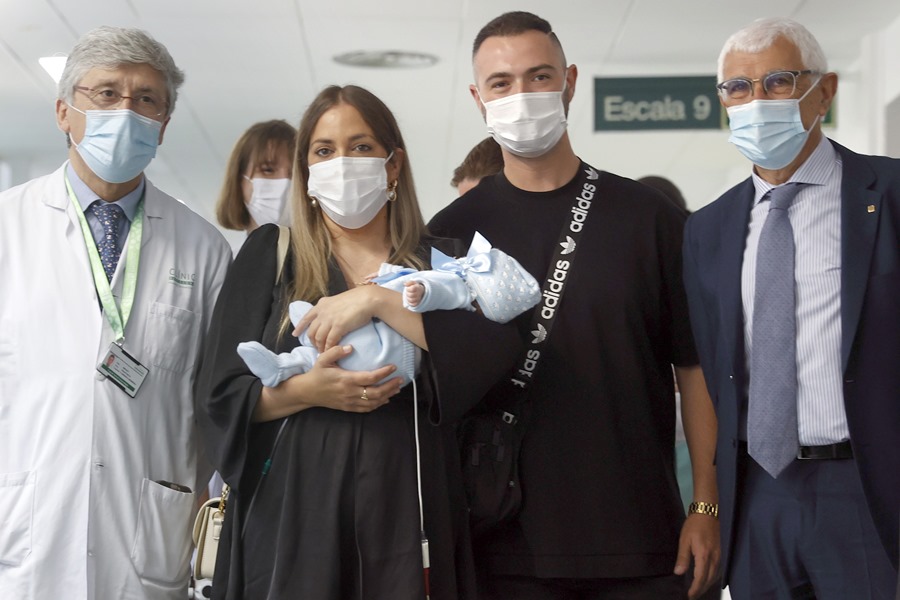
Barcelona (EFE).- Little Jesus has become the first baby born in Spain to a woman who received a uterine transplant in 2020, in a long and complex procedure carried out by the Hospital Clínic de Barcelona with an essentially reproductive purpose.
“It has been a very hard process as well as a very beautiful one and despite all the risks it has been worth it”, highlighted this Monday the transplanted woman and brand new mother, Tamara Franco, at the press conference to present this innovative procedure , in which the Minister of Health, Manel Balcells, and the Clínic’s medical team participated.
The path began in 2015, when the Clínic obtained permission from ethics committees and the Department of Health to carry out an experimental program for uterine transplantation in five cases with Rokitansky syndrome, which are women born without a uterus or fallopian tubes. , but yes with ovaries.
The first chosen one was Tamara, who, pushed by her desire to be a mother since she was little, underwent a 20-hour surgery in October 2020 to transplant the uterus that her sister donated to her.
Two months later, the patient started her period, a first sign that the procedure had worked, explained the head of the Clínic’s Gynecology Service, Francisco Carmona.
The next objective was for her to get pregnant, something that was also achieved last September, after more than one embryo transfer and an abortion.

A preeclampsia brought forward the birth
During the pregnancy, Tamara suffered from preeclampsia, a complication that involves increased blood pressure possibly derived from the medication she takes to prevent rejection of the transplanted uterus.
As she underwent numerous controls during her pregnancy, the medical team was able to control her preeclampsia until seven months into her pregnancy, when they induced a cesarean section, which took place on March 10, without complications.
Despite being born prematurely weighing just over a kilo, Jesús evolved correctly during his admission to the neonatal ICU and, once he has reached 3.2 kilos in weight and his lungs have matured, he has already been discharged, so he and his parents can now return home to Murcia.
As the uterus essentially has a reproductive function and the patient has expressed that she does not want to have more children, Carmona explained that the transplanted organ will be removed, to avoid having to continue taking medication to avoid rejection for life.
The ethical debate
Being a procedure carried out by public health, not exempt from risks for the donor and the recipient and with a reproductive purpose, Carmona has admitted that there may be “an ethical debate”, something that he sees as “positive”.
In this sense, he recalled that this case has received the approval of the ethics committees of the same hospital and of Catalonia.
He also stressed that there have been other cases in the world before, where more than 100 uterus transplants have already been carried out and more than 50 children have been born, which “gives an idea of the tremendous success of this technique.”
In this sense, Dr. Carmona has considered that it could already be applied to other indications, such as women with absolute uterine infertility factor, either because they do not have the organ from birth, it does not work properly or because they have lost it due to disease (such as cancer). ), in order to move forward and one day be able to move “from research to clinical practice”.
Regarding when this leap could be made for this intervention to be accepted in the clinical practice of a health center for specific cases, the Minister of Health has shown caution: “Everything must follow its evaluation steps and when it has to be, it will be” , Has expressed.
The entry The first baby of a woman who received a womb transplant in Spain is born at the Clínic was first published in EFE Noticias.






